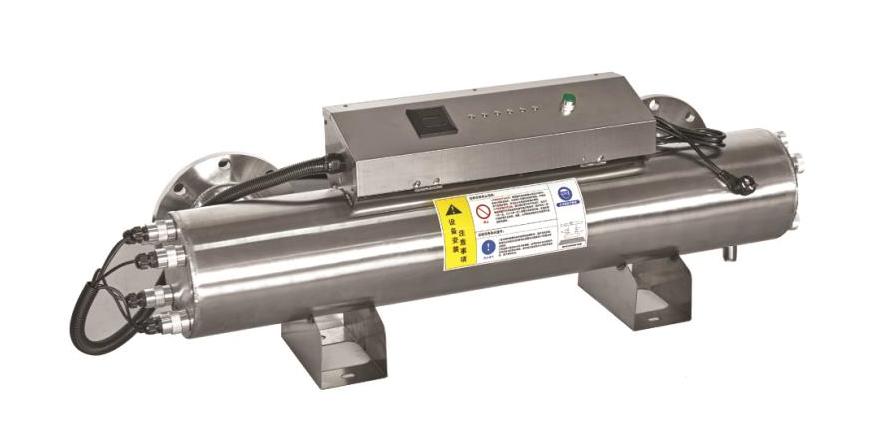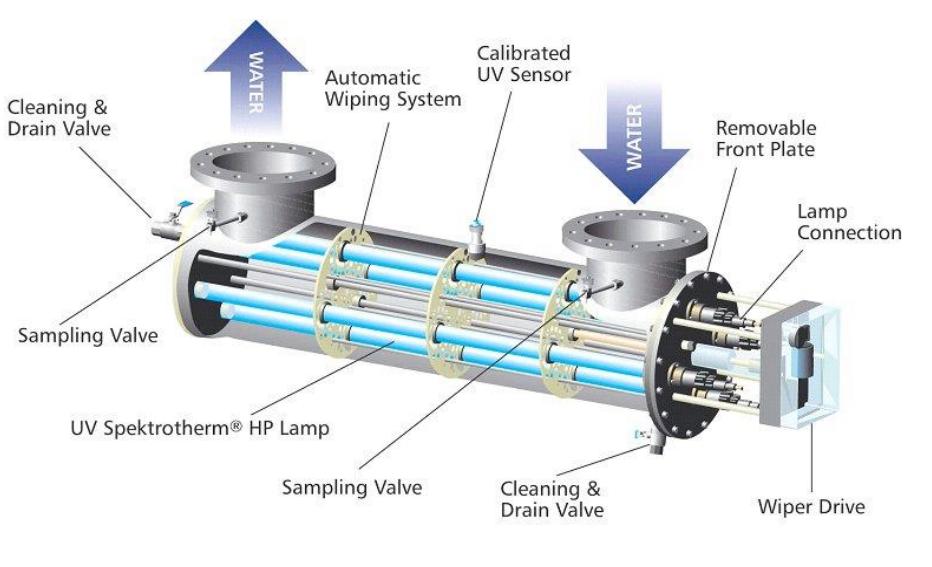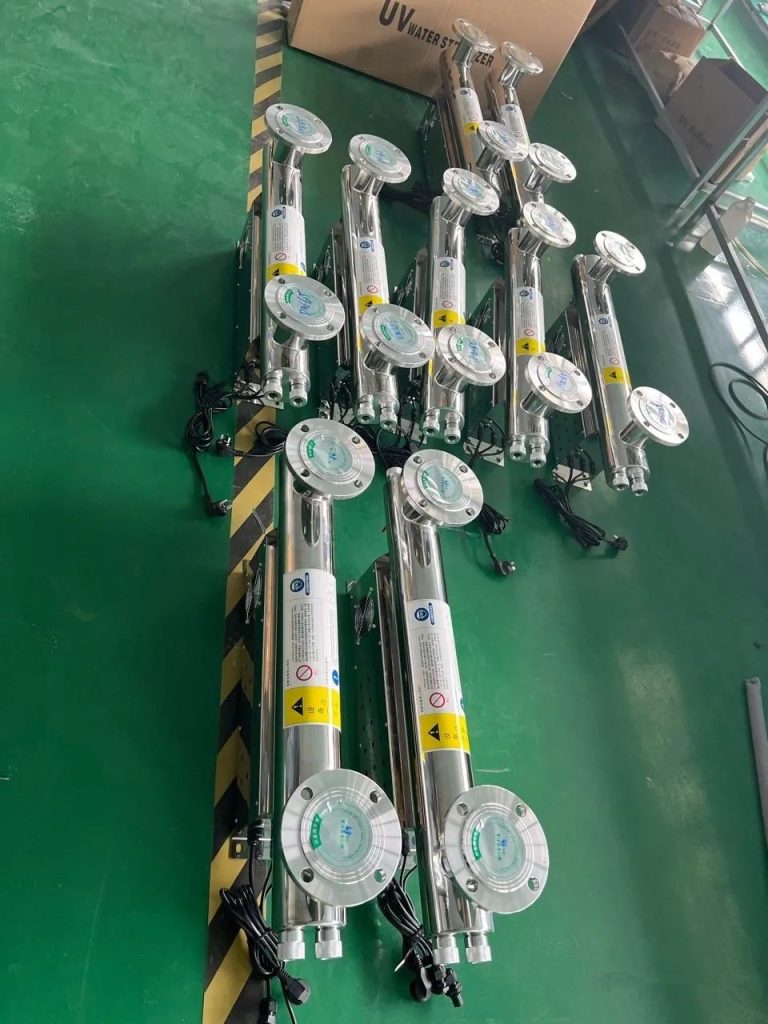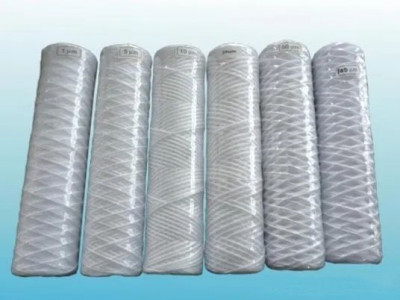March 2, 2022
UV disinfection system is recommended for the disinfection of wastewater after treatment, as well as for the disinfection of drinking water. The main advantages of UV disinfection are.
(1) UV disinfection system technology has a high sterilization efficiency, safe and reliable operation. UV disinfection has a high inactivation efficiency for bacteria and viruses and because no chemicals are added.
Therefore, it does not cause secondary pollution to the water body and the surrounding environment.
(2) Effective disinfection of Cryptosporidium and Giardia. The conventional chlorine disinfection process has a low inactivation effect on Cryptosporidium and Giardia and produces a large amount of disinfection by-products at a high chlorine dose, while UV disinfection has a high inactivation effect on Cryptosporidium and Giardia at a low UV dose.
(3) No toxic and harmful by-products, no increase in the TOC content of drinking water. UV disinfection does not change the characteristics of organic matter, and because no chemicals are added, no harmful by-products are produced, and there is no increase in TOC and BOD and other by-products that damage the biological stability of the water in the network.
(4) Can reduce odor and degrade trace organic matter, UV has a certain degradation ability for a variety of trace organic matter in water, and can reduce the odor and taste of water.
(5) UV disinfection system covers a small area, simple operation and maintenance, low cost. For disinfection of 50,000 tons of sewage per day with chlorine, a 130-meter-long, 3-meter-wide contact channel is required. With UV disinfection, only an area of 20 meters long and 3 meters wide is required; UV disinfection is simple to operate and maintain, and the operating cost is low, up to only 4 cents per ton of water or even lower, so its performance to price ratio has great advantages.
(6)Disinfection effect is little affected by water temperature and pH.
UV disinfection system technology also has certain disadvantages in engineering applications, mainly in the following areas.
(1) No continuous sterilization capability, disinfected water will be contaminated again if it encounters new sources of pollution, and needs to be used in conjunction with chlorine.
(2) Turbidity and suspended matter in the water have a greater impact on UV sterilization, reducing the disinfection effect.
(3) UV lamp casing is prone to scaling, which affects the transmission of UV light and sterilization effect, so regular cleaning of the casing and surface cooling measures are needed to prevent the formation of scale.
(4) Bacterial resurrection phenomenon, some bacteria inactivated by UV irradiation virus bacteria can repair their own damaged tissues through the assistance of light to achieve the purpose of resurrection, and some other bacteria may exist in the dark resurrection phenomenon (without light).
Detailed Operating Instructions for Automatic Dosing Systems
December 26, 2024
Characteristics and Applications of Precision Filters
December 19, 2024






